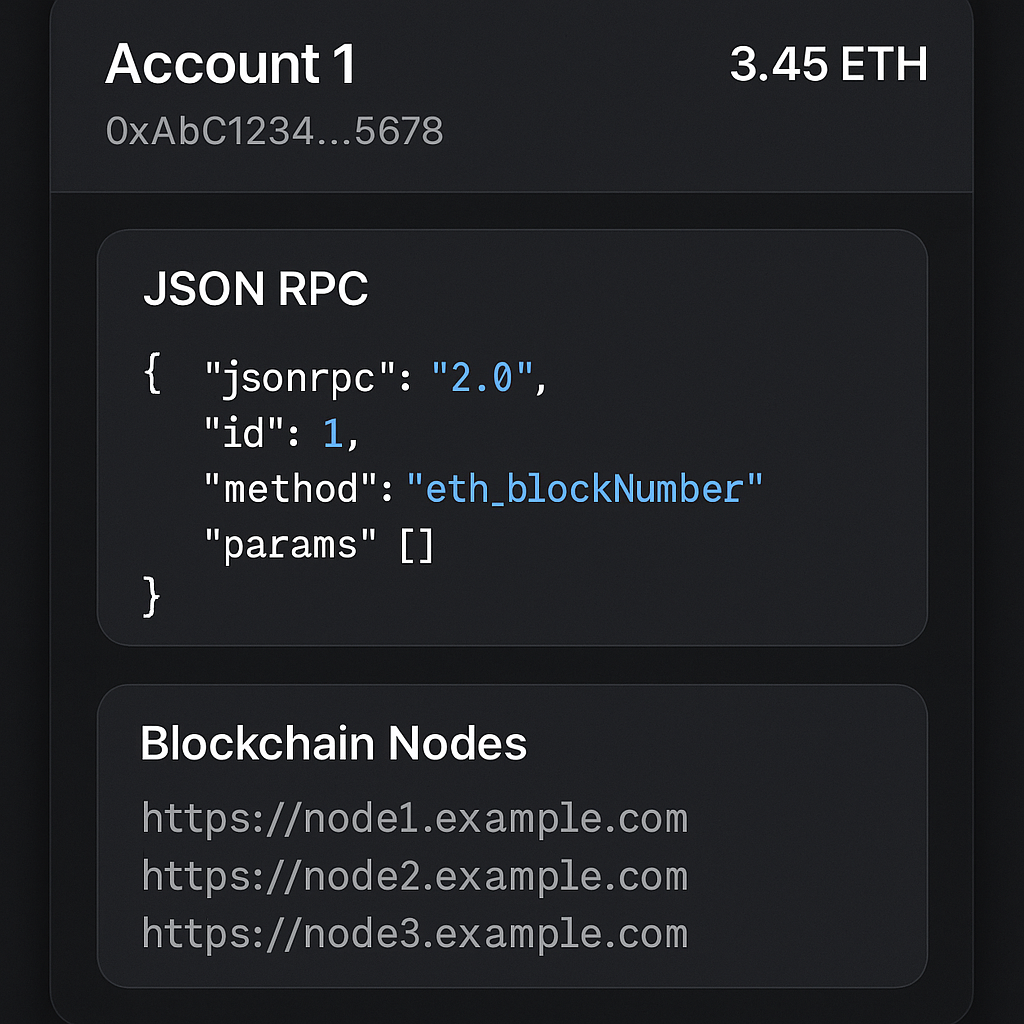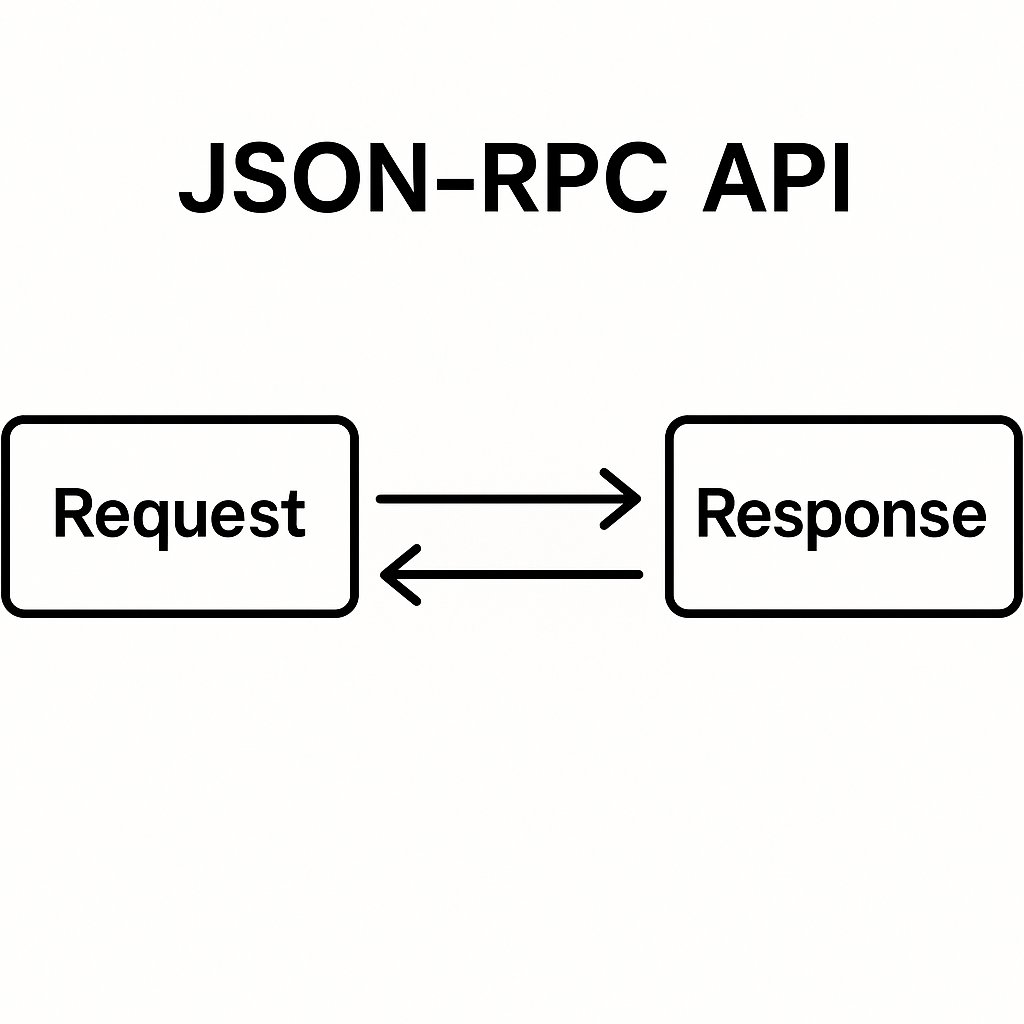Your MetaMask showing a balance of 2.5 ETH feels magical, right? That smooth Phantom wallet letting you swap SOL tokens in seconds seems like cutting-edge innovation. But here's the reality check: every Web3 wallet is essentially a glorified API client making JSON-RPC calls to blockchain nodes.
The Illusion of Complexity
When you open your favorite Web3 wallet, you're not connecting to some mystical blockchain dimension. You're literally just hitting APIs. That balance check? It's a simple eth_getBalance call[1][2]. That transaction you just sent? A basic eth_sendRawTransaction request[1][3]. Your wallet is doing what any web app does—making HTTP requests to servers and prettifying the responses.
Think about it this way: Your wallet is like a fancy restaurant menu, but the kitchen is just a McDonald's. The presentation is elegant, but underneath, it's standardized JSON requests going to blockchain nodes[4][5].
The JSON-RPC Reality
Here's what happens when you "check your balance" in MetaMask:

{
"jsonrpc": "2.0",
"method": "eth_getBalance",
"params": ["0xYourWalletAddress", "latest"],
"id": 1
}
The node responds with:
{
"jsonrpc": "2.0",
"id": 1,
"result": "0x2386f26fc10000"
}
That's it. Your wallet converts the hex to "2.5 ETH" and shows it with a nice UI[6][7]. No blockchain magic, no special protocols—just bog-standard JSON over HTTP.
Why This Matters for Your Wallet
Understanding this simplicity has practical implications. When Phantom connects to Solana, it's hitting endpoints like getBalance or getTokenAccountsByOwner[4][8]. When Coinbase Wallet shows your transaction history, it's calling eth_getTransactionByHash repeatedly[9][10].
The providers behind the curtain: Your wallet isn't directly talking to the blockchain. It's connecting to RPC providers like Alchemy, Infura, or Helius[11][12]. These services run the actual blockchain nodes and expose JSON-RPC endpoints. Your wallet is just a consumer of their APIs.
For Solana wallets, the architecture is identical. Providers like Alchemy and QuickNode offer Solana RPC endpoints that accept the same JSON-RPC format[13][14]. Whether you're on Ethereum or Solana, your wallet is making the same style of API calls.
Popular Wallets, Same Foundation
MetaMask: Browser extension making Ethereum JSON-RPC calls[15][16] Phantom: Solana-focused but architecturally identical—JSON-RPC to Solana nodes[16][17] Trust Wallet: Multi-chain support through multiple RPC endpoints[18][19] Coinbase Wallet: Enterprise-grade but still just API calls under the hood[9][20]
The Beautiful Simplicity
This isn't a criticism—it's actually brilliant engineering. JSON-RPC is perfect for blockchain interaction because it's stateless, lightweight, and simple[1][21]. The standardization means any wallet can talk to any compatible blockchain node.

Building a basic wallet becomes surprisingly straightforward once you grasp this. You need:
- A way to generate/store private keys
- JSON-RPC client to call node endpoints
- UI to display responses prettily
- Transaction signing capability
The complexity isn't in the communication protocol—it's in the user experience, security, and key management[22][23].
Why Providers Charge Premium
Now you understand why Alchemy charges for Solana RPC access and Infura has rate limits[11][12]. They're not just providing blockchain access—they're running expensive infrastructure and offering enterprise-grade API reliability. Your wallet's smooth experience depends entirely on these providers' uptime and response speeds.
The next time someone tells you Web3 wallets are revolutionary, remind them: they're just really well-designed API clients. Sometimes the most elegant solutions are built on the simplest foundations. Your wallet isn't magic—it's just JSON-RPC calls with a beautiful interface.
The real innovation isn't in the protocol. It's in making something as simple as API calls feel like the future of finance.